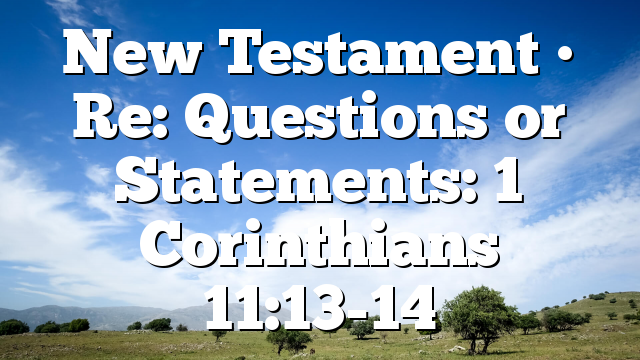David Lee wrote:
The author (both human and divine) would write in a way that the epistle could be understood by most readers, especially if it was meant to be passed around and read in different churches. I think languages have enough nuance that by using certain vocabulary, word order, and word patterns, a fluent immersed reader would be clear on what the epistle is saying, at least semantically.
The first statement of yours is an assumption, which may not be so easy to justify as you might have assumed. Your second statement is reasonable, but what if a rhetorical question and a rhetorical statement have almost exactly the same semantic meaning? Then there would be no need for the reader to attempt to distinguish between the two. Even in English not everything is a statement or a question… We see people using “…?”, “?!”, “!?!?” and so on, which seems to suggest that some exclamations are ‘in-between’…
Statistics: Posted by David Lim — May 16th, 2014, 5:18 am


















